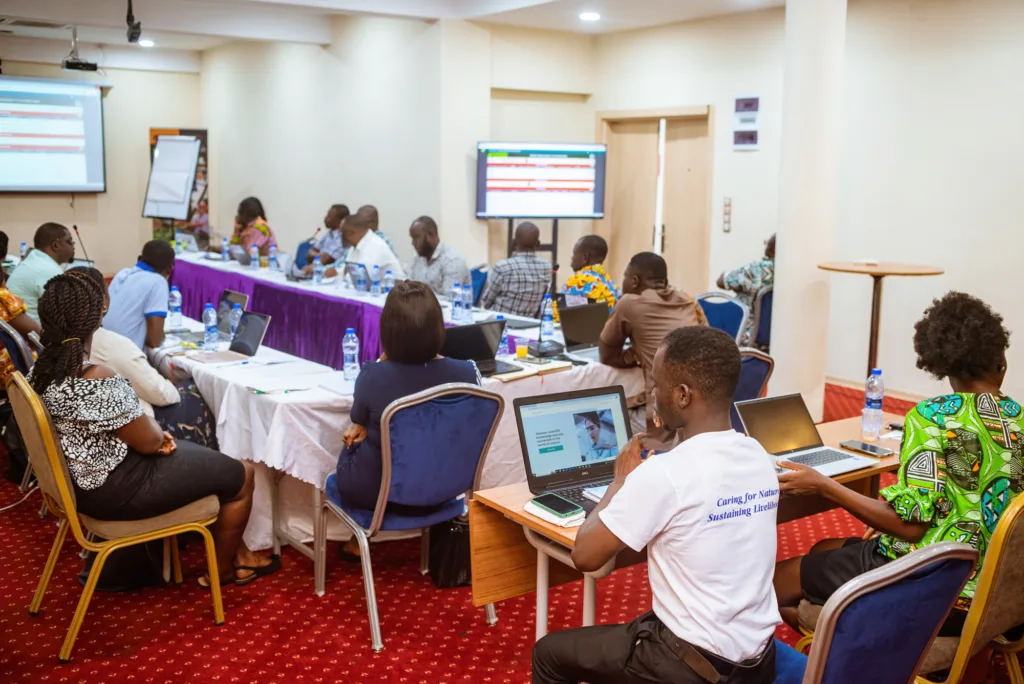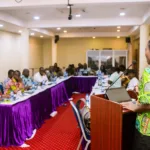European Union funded Landscapes and Environmental Agility across the Nation (LEAN) Project through farmer managed natural regeneration model has aided the resurgence of some plant species that haven’t been seen for a long time, after protecting some areas for two years in some communities in the Upper East region.
In the Savannah zone where World Vision Ghana is implementing the LEAN project, the Landscape Management Boards have gradually become conscious of their role and accepted that the issue of environment protection is not in the hands of government but they as community members have a critical role to play.
In an interview, Mr. Joseph Edwin Yelkabong, LEAN Project Manager for World Vision Ghana during the 4th Consortium Capacity Building Workshop & Reflection Meeting said ‘Women who are into pottery and molding of local pots need some special kind of grass which serves as oven, have testified that they are beginning to harvest grass from their neighborhoods instead of travelling long distances into the valley areas to get these grasses to better prepare their pots for sale’

According to him, lots of farmers who have included tree planting on their farms and also adopted Farmer Managed Natural Regeneration on their farms are now giving testimonies that their farms look more promising than before.
He added that ‘the change of mindset to go directly in deliberate tree planting alone is one impact that we think that we are making so far and we hope that before the close of the project we would have made some strides in that regard’
Mr. Yelkabong said his organization is currently deepening education to the masses and the feedback has been massive. Community members have showed interest in picking seedlings from their nurseries that are even not of fruit value.
‘We are also just rolling out our alternative livelihood component where we are working to provide community members with small ruminants that is sheep and goat for rearing’ he said
On some of the challenges that the project is facing in his landscape however, the project manager stated that the issue of water in the Savannah landscape is one key challenge that they have especially in West Gonja where there’s perennial water shortage. Seedlings such as Shea take about two years thus in the dry season farmers have to ensure continuous supply of water so that they can be hardened and suitable for the field.
Also, one of the biggest challenge in the restoration effort of the LEAN project in the Savannah is bush fires which occur on annual basis. The organization is therefore providing all the necessary support and consciously engaging communities by sensitizing them and increasing the awareness on the effects of bush fires.
‘We are making them understand that once this issues continues, our tree cover is going to be very poor because once seedlings grow and they are burnt it means the cycle has to start all over again and this will not ensure the fluidity that we want to see in the growth of the seedlings’.
Source: Ghana/Starrfm.com.gh/103.5FM




